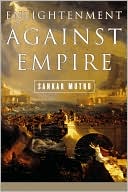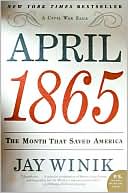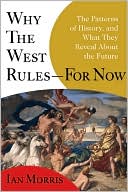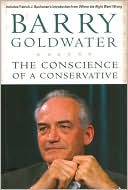Enlightenment against Empire
Search in google:
"Neither pure universalism nor radical relativism can provide the foundation for a valid critique of imperial ideology. A successful attempt at coordinating the two approaches was made at the time of the Enlightenment. In today's world, where imperialism has again become a motivating force in international politics, Sankar Muthu does well to revive and analyze this critical conception."--Tzvetan Todorov, author of Hope and Memory"This is a remarkable book to come from a young scholar. Sankar Muthu has recovered a lost history of Enlightenment anti-imperialism, and shown us how its great exponents--Diderot, Kant and Herder--were able to combine a keen sense of cultural diversity with a steady awareness of what may be morally universal. The book is not only a virtuoso piece of historical reconstruction, but also a lesson in how a proper understanding of history equips us in unexpected and powerful ways to make sense of our own time."--Richard Tuck, Harvard University"An impressive work of scholarship with a fascinating line of argument, Enlightenment against Empire is an important contribution to contemporary debate and a necessary corrective to one of its main tendencies. In very readable prose, Muthu demonstrates that the characterization of Enlightenment humanism as Eurocentric and exclusionary does not fit the three very important thinkers examined, and indeed that Enlightenment humanism provides valuable resources for rethinking moral, social, and political theory today."--Thomas A. McCarthy, Northwestern University"Through close readings of Diderot, Kant, and Herder, Muthu analyzes an anti-imperialist strand in eighteenth century political thought. He sees these thinkers as providing a novel view of what it means to be human: 'humanity as cultural agency,' that is, membership in diverse social units with distinctive practices and beliefs. From Muthu's emphasis upon the thick notion of culture shared by these authors, he derives general arguments for human worth and respect, and rejects facile indictments of 'The Enlightenment' or 'The Enlightenment Project.'"--Melvin Richter, Hunter College Foreign Affairs A well-argued first book that is as original as it is convincing.
Acknowledgements1Introduction: Enlightenment Political Thought and the Age of Empire1Enlightenment Anti-imperialism as a Historical Anomaly3Synopsis62Toward a Subversion of Noble Savagery: From Natural Humans to Cultural Humans11Noble Savagery in Montaigne's "Of Cannibals"14Lahontan's Dialogue with a Huron24New World Peoples in Rousseau's Conjectural History31Diderot and Bougainville's Voyage46Diderot's Tahiti: Appropriating and Subverting Noble Savage Theory52The New World as a Device of Social Criticism: The Overlapping and Rival Approaches of Diderot and Rousseau59The Dehumanization of Natural Humanity663Diderot and the Evils of Empire: The Histoire de deux Indes72The General Will of Humanity, the Partial Incommensurability of Moeurs, and the Ethics of Crossing Borders77On the Cruelties Unleashed by Empire in the Non-European World87Trading Companies and Conquest: On Commerce and Imperial Rule97The Disastrous Effects of Empire upon Europeans104Europe: Not a Civilization Fit for Export1114Humanity and Culture in Kant's Politics122Humanity as Cultural Agency125Cultural Freedom and Embedded Reason130From Humanity to Personality133Kant's Social Criticism: The Vulnerability and Commodification of Cultural Agency135Humanity as Dignity138Noumenon as the Curtailment of Metaphysics141Aesthetic Humanity: The Opportunities and Injustices of 'Civilized' Sociability144Humanity as Cultural Agency in Political Context: Combating State Paternalism155Humanity as Cultural Agency in a Philosophy of History: Kant's Narrative of Hope1625Kant's Anti-imperialism: Cultural Agency and Cosmopolitan Right172Self-Cultivation, Pluralism, and Cultural Freedom173Anthropological Diversity: From Race to Collective Freedom180Anti-imperialism and Cosmopolitan Right186An Unusual Social Contract Doctrine2006Pluralism, Humanity, and Empire in Herder's Political Thought210Generalizations, Contingency, and Historical Judgement212The Flux of History218On the Horizons of Knowledge and Universal Standards221Early Thoughts on National Communities224'Humanity' as Philosophical Anthropology226Conceptualizing Human Diversity: Sedentary versus Nomadic Societies238Beyond Empire and toward International Justice: 'Humanity' as a Moral Ideal2477Conclusion: The Philosophical Sources and Legacies of Enlightenment Anti-imperialism259Pluralizing 'the' Enlightenment260Universal Dignity, Cultural Agency, and Moral Incommensurability266Notes285Works Cited325Index341








